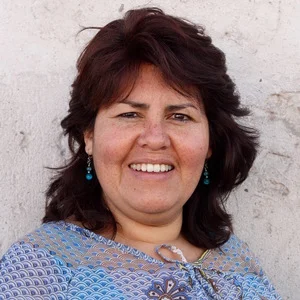Caily Moore lived and worked with us in Arequipa for the last 2+ years as part of a missions apprenticeship. You can read her complete letter here, but I wanted to share a snapshot of what she learned at the close of this edition of the Team Arequipa newsletter.
Megan McKinzie - Arequipa Trip Reflection 2024
Fifteen years ago (this summer), a research team led by Bill and Holly Richardson came to help us collect data around our neighborhood of Miraflores in Arequipa, Peru. Our little family moved to Peru in 2008 with the Smith Family. We moved with our almost 2-year-olds. We were coming up on one year of living in Arequipa, and I was about to pop with our first little Peruvian-born baby. It was a joy to host this eager group of possible missionaries. Do you recognize anyone in the research team photo?
Ana McKinzie - A Reflection on 3 Weeks in Arequipa
Given everything else you could be doing right now, I’d like to make this time with you meaningful. I’d like to be raw with you. But first, let’s start with an introduction! To those of you who don’t know me: Hi, My name is Ana McKinzie. I’m a former missionary kid, a rising senior, and a girl in awe of how much God revealed to her through this trip. “This trip” was a three-week time span stretching from the end of June to mid July. To those who do know me, you already know that this was not my first time in Peru.
Jesus in Baseball Pants by Percy Chavez
We began a baseball league here a couple of years ago as a way to relax, keep in touch with old friends, make new ones and do some exercise (or try to, lol). Most people in Arequipa have no idea what baseball is, but it is slowly growing and we are now a six-team league where you can find a variety of personalities, cultures, backgrounds, and lifestyles. We play about two seasons per year. As the seasons go on, you can see the different personalities of each team emerging. There are the “we are here to win, not have fun” teams, the “we’re hungover from partying last night” teams, and the “win or lose, we just wanna play baseball” teams. Jake and I are on a team called the “Lonccos,” which roughly translates to “the rednecks.”
Language and Culture Survey of Missionaries by Jarren Longoria
One of the assignments of my internship with Team Arequipa this summer was to do a project related to missions in an area of my own interest. I chose to survey missionaries from around the world with some questions related to language acquisition. My objective was to understand how missionaries learn new languages and the specific ways in which ministry goals and cultural adaptation are contingent upon language acquisition. I sent out my ten-question survey through SurveyMonkey to as many missionary contacts that I and my mentors for this project could think of. A mix of 26 short-term and long-term missionaries from 11 different countries and territories shared their cross-cultural experiences as it related to language learning as well as cultural/ministerial goals. I explain some of my most interesting findings in this article.
A Visit to Arequipa by Chris Adams
I wanted to share some of my thoughts after spending just one day with the CUDA team and hope to pass along the excitement I felt working alongside these servant-leaders. I’ve been a member of CUDA’s board for four years and thought I had a good handle on the scope of our mission in Arequipa. However, visiting the city and witnessing first-hand the amazing work of CUDA’s staff and volunteers was an unforgettable experience.
Being a Church of Servants
Two years ago we, as a church family, set out to be more servant-hearted and set a goal to do service projects together. Last year we worked at an orphanage fixing up their study room and dining room. From that service project we began further talks with the director of the orphanage (and of several other orphanages), Pastor José, about how we could continue to serve the kids and orphanages. Paty wrote about the way we have been involved with the kids for the past couple of months.
McKinzie Family Update
any of you have followed our journey since returning to the states. My last blog post is found here. Since moving to California, I haven’t blogged much. We have almost been in CA for an entire year. That is unbelievable to me. Our 2015-2016 year has been overwhelmingly full, and I would love to share more of our story.









